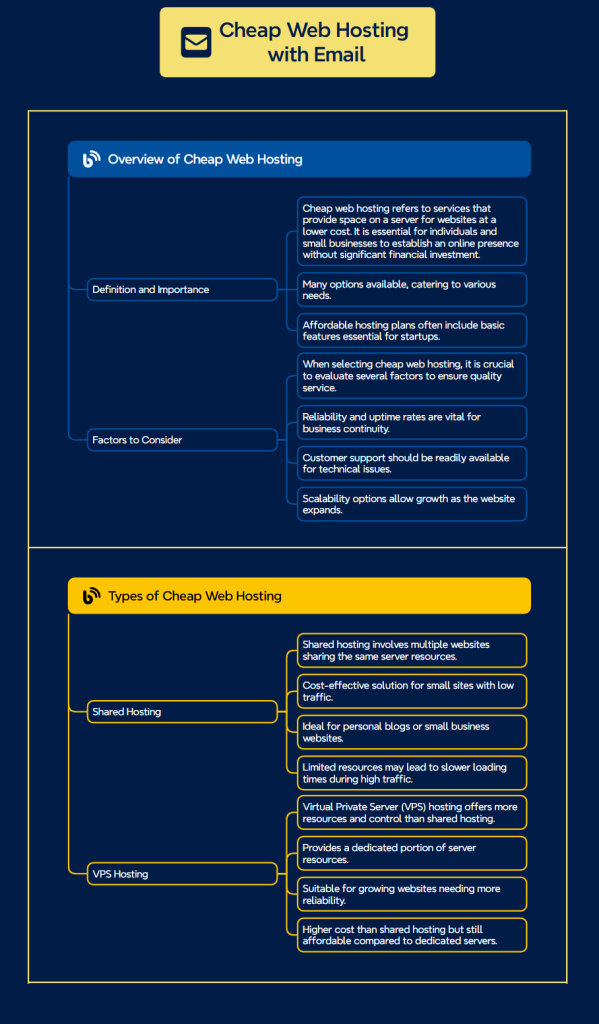Web hosting services often include a suite of email tools to manage communication efficiently. One essential feature is the ability to create and manage personalized email accounts (e.g., name@yourdomain.com), providing a professional image for businesses. In this article, we will explain how Copahost provides cheap web hosting with email.
Table of Contents

Total email control, even in cheap web hosting plans
Using the hosting control panel, users can set up email accounts, configure storage quotas, and manage access. These tools typically integrate with webmail clients such as Roundcube, Horde, or SquirrelMail, allowing users to send and receive emails through a browser without additional software.
Spam management is another key offering in most web hosting email tools. Features like SpamAssassin and custom spam filters help reduce unwanted messages and ensure inboxes stay clean. Email forwarding and autoresponders are also included, enabling users to redirect emails to another address or send automatic replies when unavailable. Additionally, hosting plans often support email routing and MX record management to ensure seamless email delivery.
Advanced hosting plans may also offer support for third-party integrations like Google Workspace or Microsoft 365, allowing users to combine domain-specific emails with enhanced collaboration tools. Secure email protocols like SMTP, IMAP, and POP3 are standard, ensuring compatibility with desktop and mobile email clients such as Outlook or Thunderbird. These features collectively make hosting email tools a comprehensive solution for both personal and professional use.
Security tools in Cheap Web Hosting with Email
Email is secured with TLS (Transport Layer Security) by encrypting the connection between email clients and servers, as well as between email servers themselves. TLS ensures that the data transmitted during email communication remains private and secure, protecting it from interception by unauthorized parties. When enabled, TLS establishes a secure “handshake” between the sender and recipient’s email servers, encrypting the email contents and metadata during transmission.
This encryption process helps safeguard sensitive information, such as login credentials, personal details, or business communications, from being intercepted or altered by attackers. For example, when you send an email from your client (like Outlook or Gmail) to the email server, TLS ensures the communication is encrypted using protocols such as SMTP over TLS (STARTTLS). Similarly, when the email travels between servers (server-to-server encryption), TLS ensures the message remains secure as long as both servers support it.
However, it’s important to note that TLS protects emails during transit, not at rest. Once the email reaches its destination and is stored on the server, it may require additional measures, such as encryption at rest or secure email storage solutions, to remain protected. By enabling TLS, email providers ensure a foundational level of security that significantly reduces the risks of eavesdropping and data breaches.

Accessing your email accounts
Customers at cPanel hosting companies can access their email accounts in multiple ways, providing flexibility and convenience. The most direct method is through webmail, which allows users to manage emails via a web browser without installing additional software.
To log in, users can visit the hosting provider’s webmail URL (e.g., yourdomain.com/webmail), enter their email credentials, and choose a webmail client such as Roundcube, Horde, or SquirrelMail. This method is especially useful for accessing emails from different devices or locations.
Another common option is configuring an email client, such as Microsoft Outlook, Thunderbird, or a mobile app like Gmail or Apple Mail. Customers can retrieve their email settings from the cPanel interface under the “Email Accounts” section, which provides IMAP, POP3, and SMTP server details.
These settings are essential for setting up incoming and outgoing mail. IMAP is preferred for syncing emails across multiple devices, while POP3 is suitable for downloading emails to a single device.
Lastly, cPanel hosting often supports third-party integrations, allowing customers to connect their email accounts with services like Google Workspace or Microsoft 365. This option is ideal for businesses seeking advanced productivity features while maintaining domain-specific email addresses. With multiple access methods, cPanel hosting ensures users can manage their emails securely and efficiently, regardless of their preferred platform.
Creating and managing E-mail accounts in cPanel
Creating and managing email accounts in cPanel is straightforward and user-friendly, making it ideal for individuals and businesses to set up professional email addresses. To create an email account, users navigate to the “Email Accounts” section within cPanel.
Here, they can click on “Create” and specify the desired email address (e.g., name@yourdomain.com), set a strong password, and define the mailbox’s storage quota. Once the account is created, it can be accessed via webmail or configured on email clients using the provided server settings. Even ordering cheap web hosting with email allows users to have total control over the email accounts.
Managing existing email accounts in cPanel involves several options to ensure optimal performance and security. Users can update storage quotas, reset passwords, and enable or disable email accounts as needed. Additionally, features like email forwarding allow messages sent to one address to be automatically redirected to another, simplifying communication. Autoresponders can be set up to send automatic replies, such as “Out of Office” notifications, enhancing functionality for personal and professional use.
To monitor and maintain email accounts effectively, cPanel provides tools for spam management, such as SpamAssassin, to reduce unwanted emails. Users can also manage email filters to organize incoming messages and block specific senders.
With these features, cPanel ensures users have a comprehensive platform to create and manage email accounts tailored to their needs, all within an intuitive interface.

cPanel: the best control panel for Cheap Web Hosting with Email
cPanel is highly recommended for those seeking budget hosting services with e-mail due to its user-friendly interface and comprehensive functionality. It provides a centralized platform for managing websites, emails, databases, and files, making it an excellent choice for beginners and small businesses.
Many budget hosting providers include cPanel in their plans, offering professional-grade tools at an affordable price, ensuring users get maximum value without needing advanced technical knowledge.
One of the key advantages of cPanel for budget users is its ability to simplify complex tasks. Whether it’s setting up email accounts, installing applications like WordPress, or managing backups, cPanel streamlines these processes with intuitive features.
It also includes tools for monitoring resource usage, such as CPU, memory, and disk space, helping users stay within the limits of their budget-friendly hosting plans.
Additionally, cPanel’s widespread popularity means a vast array of tutorials, forums, and support resources are readily available online. This makes it easier for users on a tight budget to troubleshoot issues or learn new skills without hiring professional help.
With its rich feature set, ease of use, and compatibility with affordable hosting plans, cPanel is a practical and cost-effective choice for budget-conscious website owners.
